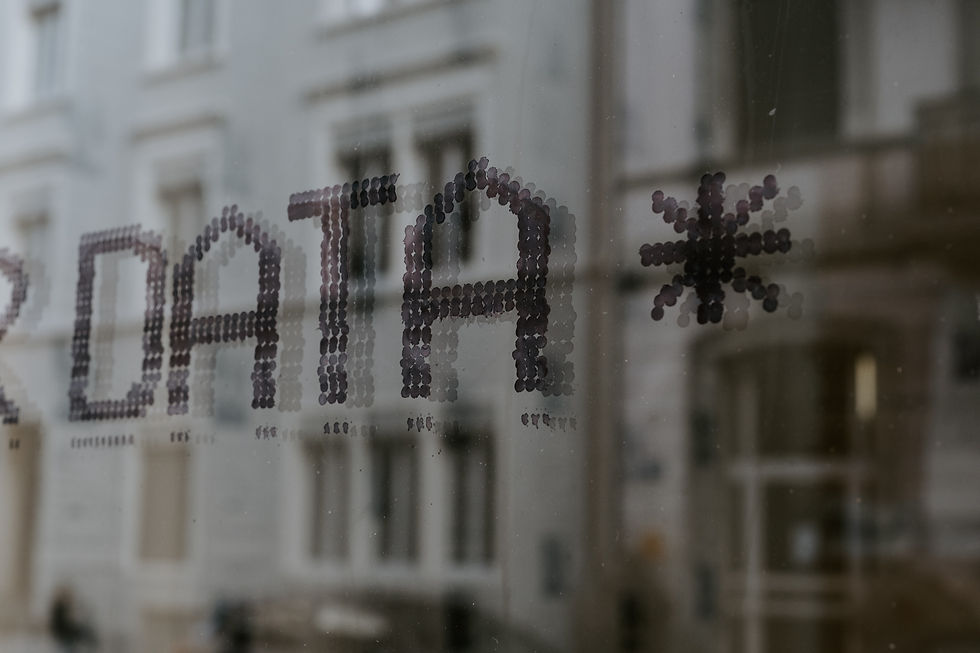Q&A with Helen Jennings, Cambridge Law finalist and reproductive rights advocate
- CUHRLS
- Feb 29, 2020
- 3 min read
Updated: Aug 14, 2020
By Jing Min Tan
The “Q&A with…” series aims to tell the stories of practitioners in human rights and justice-related advocacy, so that Law students get an idea of what a professional life in this field could look like, and steps to take to get there.
There’s no better person to start this series off with than Helen Jennings. Helen is a Law undergraduate finalist at Pembroke College, and she was the Lead Convenor of the conference “The Development of Abortion Rights in a Changing Europe”, held in the Law Faculty in September 2018 and supported by the Cambridge University Centre for Law, Medicine and Life Sciences, and the Cambridge Centre for Public Law. Outside of Cambridge, she is the UK ambassador and Global Advisor for Girls20, a global initiative to empower young female leaders. Most recently, she appeared as a panelist for our event on abortion rights in Northern Ireland.
Q: How did you get passionate about human rights advocacy and what gave you the idea of organizing a conference on abortion rights?
A: I started being interested in human rights advocacy when I became a peer advocate with the Children’s Rights Law Centre in Belfast when I was 13. We undertook a review and compiled a report to the United Nations Committee on Rights of the Child, which focused on whether young people felt that their rights were respected and protected by local government. It was so expansive—covering areas like counseling in schools, political participation, mental health and more; and it brought home the idea that human rights affects real lives. It was then that I decided I wanted to make human rights my life’s work. As for the conference – I think that coming to Cambridge as a non-English student is quite an alienating experience. I realized how Anglo-centric attitudes were in Cambridge, and in particular the Law Faculty. While that isn’t a bad thing, there were these huge shifts happening with regard to legal provision for reproductive rights in Northern Ireland, campaigning that I was involved in in my personal life, but that simply wasn’t being reflected in my degree.
It occurred to me that I could use the resources available to me in Cambridge to open up academia as an avenue for activism. The Law Faculty was really supportive when I decided to organize a conference, and I saw it as a civic duty to my home country—as well as a contribution to academia here in the UK. There was so much that was happening at home that I couldn’t get involved in, and I used the platform I had here to bring those voices into Cambridge. We put out a call for submissions, and academics and practitioners responded from all disciplines. The Conference saw the presentation of ten papers which the academics could all go on to publish, and there were really great, balanced debates that developed from the Conference.
Q: Tell us how you got involved with advocacy for reproductive rights.
A: So in 2016, there was a huge strike that occurred all over the world, called #StrikeForChoice, in support of the campaign to change abortion law in Ireland. I just had an epiphany that I needed to get involved. I wrote an article on my involvement in the strike in Varsity [which you can read here]. Funnily enough, I coincidentally found out that my brother was involved in the London-Irish Abortion Rights Campaign – I had no idea before then! He shared the article with the group, and that’s how I got involved with them.
Q: While it seems like opportunities in commercial law are available everywhere we look, a career in human rights law seems a lot more inaccessible. How do you go about exploring a future in that field?
A: My suggestion would be to find an issue that’s personal to you, and use that as your starting point. My human rights journey started long before Cambridge. I was active in advocating for reproductive rights in my first year. I didn’t engage with that issue when I lived back home because it was too controversial, and it was too scary to talk about it. And then I started studying Law at Cambridge, where I got the knowledge and language to be able to think critically about what was happening back home. Human rights starts from home. Find an issue that is specific to your home space, an issue that affects that your people. Then, you can move on to global issues—find an issue that hurts you in some way; that strikes a chord within you.
For instance, if I were a student in England, I’d be thinking about the impact of Brexit and its human rights implications—the accessibility of rights protection for refugees, for example. Everyone can find a space for their voice within human rights activism.




Comments